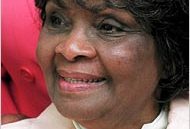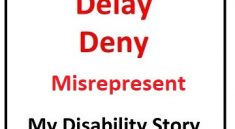Colonel Benjamin Cleveland American Revolution patriot, War criminal?, Vigilante justice, Hangings of Battle of Kings Mountain loyalists, Lynched neighbors believed to be Tories
From NC pedia.
“In 1776 the royal governor of North Carolina initiated a plan to conquer the state, and back country Tories were formed into militia companies. Cleveland took his company of riflemen to join the Surry militia, which summarily dispersed the Tory rising in Surry County. They then proceeded south to march against the Tories on the Cape Fear. “Tory risings” and “Patriot retaliations” were the most significant feature of the civil war on the Upper Yadkin. When Tory prisoners were taken,Cleveland administered punishment with his own sense of rigid justice. Reconstructed Tories were allowed to take an oath of loyalty to the state and were set free; unregenerate Tories were hanged. Cleveland‘s vigorous methods did not always find support. In the fall of 1779 two Tories were hanged by Cleveland scouts, and for this act he was indicted for murder in the superior court of Salisbury; he was ultimately pardoned by the governor. Cleveland himself was once captured by the frontier Tories, but the quick action of his brother, Robert, brought about his rescue.”
https://www.ncpedia.org/biography/cleveland-benjamin
From Historical sketches of Wilkes County.
“James Coyle and John Brown, two notorious Tory plunderers….were captured by some of Cleveland’s scouts and brought to Wilkesboro and Col. Cleveland had them hung with Wilfong’s clothes line on the oak tree that is yet standing just north of the court house in Wi1kesboro.”
“Every Tory in the country knew full well that Cleveland was probably their worse enemy; how prominently he had figured at King’s Mountain, and had given his influences for the Tory executions at Bickerstaff’s and caused the summary hanging of Coyle and Brown at Wilkesboro”
“The prisoners were Captain Riddle and two of his associates named Reeves and Goss. They were brought to Wilkesboro and tried by court martial and sentenced to be hung. But in order to gain favor with the Whigs or get them in a condition so that they might escape Riddle treated them freely to whiskey. Col. Cleveland informed him that it was use less to be wasting his whiskey as he would be hung directly after breakfast. The three Tories were accordingly hung on the notorious oak that is yet standing in Wilkesboro. Mrs Riddle, wife of the Tory leader, was present, and witnessed the execution of her husband and his comrades.”
“It was not long until one of Cleveland’s men captured Zachariah Wells who had not yet recovered from the wounds received at Riddle Knob. He was taken to High’s bottom about a mile below Cleveland’s Round About residence. Here James Gwyn, a youth of thirteen, with a colored boy, was at work in the field, when Cleveland, who had joined those having the prisoner in charge, took the plow-lines from the horse with which to hang Wells, to a tree on the river bank. Young Gwyn, who knew nothing of the stern realities of war, was shocked at the thought of so summary an execution. Being well acquainted with Col. Cleveland he begged him not to hang the poor fellow, who looked so pitiful and was suffering from his former wound. This excited the Colonel’s sympathies, and he said, “Jimmie, my son, he is a bad man; we must hang all such dangerous Tories, and get them out of their misery.” Captain Robert Cleveland who at present was cursing the wincing Tory at a vigorous rate. With tears coming down his cheeks, the Colonel adjusted the rope, regretting the necessity for hanging the trembling culprit–remembering very well the rough treatment he had received at the hands of Wells at the Perkins place at the Old Fields; and firmly convinced that the lives of the patriots of the Yadkin Valley would be safer,.and their slumber all the more peaceful, when their suffering country was rid of all such vile desperadoes. Wells soon dangled from a convenient tree and his remains were buried in the sand on the bank of the river.”
“Many other Tories fell into the hands of Cleveland’s brave troopers and summary punishment was meted out to them in Cleveland’s usual way. Once a Tory leader named Tate and eight others were captured and Cleveland and his men had them near old Richmond, in Surry county. When Cleveland was about to execute the leader, Colonel William Shepherd protested against such summary justice. “Why,” said Cleveland, “Tate confessed that he has frequently laid in wait to kill you.” “Is that so?” inquired Shepherd, turning to the Tory captain. Tate confessed, and Shepherd yielded to Cleveland’s plan and soon Tate dangled from a limb. Tate’s associates suffered only imprisonment as other prisoners of war.
On another occasion Col. Cleveland visited Col. Shepherd at Richmond where ho had two notorious horse-thieves in prison. Cleveland insisted on swinging them to the nearest tree lest they should make their escape and yet further endanger the community–at least one of them, whose crimes rendored him particularly obnoxious to the people. One end of a rope was fastened to his neck when he was mounted on a log and the other end tied to a limb; then the log rolled from under him and he dangled from a limb in plain view of the prison. The other culprits was shown his comrade swinging from the limb and he was given his choice,to take his place beside him or cut off both his own ears and leave the country forever. The Tory knew it would not do to meddle with old Round About, so he called for a knife. He was handed a case knife, and after whetting it on a brick he gritted his teeth and sawed off both his ears. He was then liberated and he loft with the blood streaming down both cheeks and was never heard of afterwards.”
http://www.ibiblio.org/mtnivy/BAJ/crouch.htm



